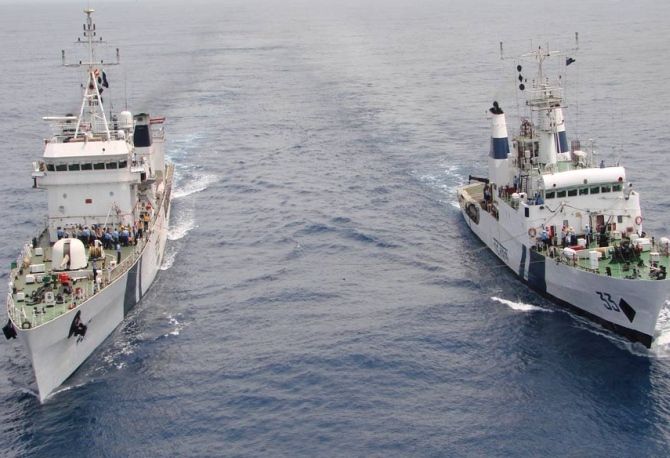In view of the coastal security lapse during 26/11 attack, the Indian Coast Guard has begun augmenting its off-shore strength and the force aims to have 150 ships and 100 twin-engine aircraft by 2020 in its fleet. "The Mumbai attacks brought in lot of self-awareness. Our coastline was generally considered to be secure. We never anticipated this kind of terror using the sea route. This also brought in awakening," Indian Coast Guard Director General Anurag G Thapliyal told reporters on Wednesday after launching an off shore patrol vessel at Goa Shipyard Limited.

"The Government of India has been committed to fill in the gap which existed. Detailed analysis was done based on which reports were prepared and measures initiated in all the areas," he said. After the incident, additional units, shore stations as well as coastal radar chain network were set up for the Coast Guard, which also saw augmentation of the manpower.

"Today we have 11,000 people with us. At the time of 26/11, there were 65 ships, today we have crossed the 100 ship mark. In addition to that, there are 90 ships that are being made in various shipyards," Thapliyal said. The aim is to have 150 ships and 100 aircraft by 2020, he said. "We are looking at twin-engine aircraft which are operated from the ship and also similar aircraft operating from the shore," he said. "The government approvals for the augmentation of the fleet are through. Now the selection of vendor and their (ships and craft) construction will take its time," he said.

The arduous task off the shore is to check the huge number of ships operating in the sea, the DG said. "On the Indian coastline, we have 2,50,000 boats of which 80,000 go in the sea every day. Physical verification of every boat is desirable but not possible," he conceded. The boats are now being tagged and there is separate colour coding for each of them depending on their state of origin. To avoid the possibility of trawler being hijacked by terrorist, identity cards are made mandatory for fishermen, he said.

The Coast Guard along with the Union government is working on giving a single card to every fisherman which will have all his data, rather than asking him to carry multipl cards. The integration of cards, including the Aadhar card, for the fishermen is on the anvil, Thapliyal said. The fishermen have also been asked to install transponder on their boats so that they can be tracked on a regular basis, he added.”












 © 2025
© 2025